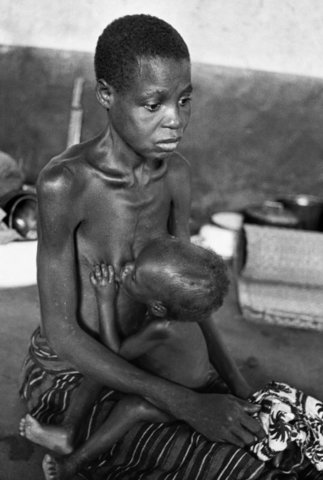
An emaciated mother seen here trying to breast fed her baby, just two of the estimated one to two million victims of the Biafran War. The Nigerian Civil War, also known as the Biafran War, endured for two and a half years, from 6 July 1967 to 15 January 1970, and was fought to counter the secession of Biafra from Nigeria. The indigenous Igbo people of Biafra felt they could no longer co-exist with the Northern-dominated federal government following independence from Great Britain. Political, economic, ethnic, cultural and religious tensions finally boiled over into civil war following the 1966 military coup, then counter-coup, which led to the persecution of Igbo living in Northern Nigeria. Control over oil production in the Niger Delta played a vital strategic role in the causes of the war.
Within a year, the Nigerian Military Government had surrounded Biafra and imposed a blockade. The ensuing stalemate led to a severe famine in the region. Over the two and half years of the conflict, according to varying estimates, one to two million people died from starvation, diseases or fighting. 23 June 1968